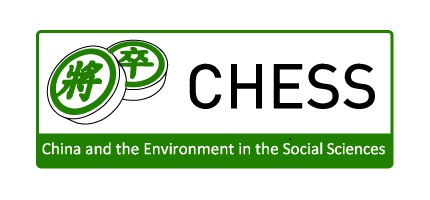


CHESS Young Scholars Conference 2015 - Responding to China's Environmental Crisis: Interdisciplinary Approaches*
The research network on China and the Environment in the Social Sciences (CHESS) was founded at the Department of East Asian Studies, University of Vienna, in 2013 as a forum for postgraduate students with research interests relating to the environment in China. As the group’s inaugural event, the CHESS Young Scholars Conference 2015 took place on February 27-28 at the University of Vienna. Altogether 37 young scholars and academics from across the globe took part in the conference. The two conference days featured five panel sessions and two keynote speeches. Each panel was also provided with a highly-qualified discussant, who offered individual feedback to every panellist. The detailed conference programme can be accessed at http://chess.univie.ac.at/chess-young-scholars-conference-2015/program2/. Apart from laying the foundation for fruitful collaborations, the conference also functioned as a forum for talented young scholars to present their views and approaches to China’s pending environmental crisis from various disciplinary angles.
Day 1 started with an eye-opening keynote speech by Yu Xiaogang (Green Watershed China), one of China’s leading environmental activists. Mr Yu elaborated on the responsibility of China’s banks with regard to climate change. He stressed their potential to prevent rogue firms from exploiting green credit, and to positively influence greenhouse gas emissions. Courtesy of Mr Yu, CHESS was also provided with a full series of Green Credit Banking Sector Reports published by the NGO Green Watershed China. The conference’s ensuing first panel revolved around China’s Circular Economy (CE). In particular, the role of CE as a national development strategy (Wang, National Taiwan University), related informal waste management activities (Steuer, Vienna) and its implementation at company level as well as within the context of ship recycling (Staudner, BOKU) were discussed. Panel II dealt with civil society organisations, enterprises and corporate social responsibility (CSR). The presenters put forward highly sophisticated and viable analytical frameworks (Leggett, Free University Berlin), and a detailed CSR case study in Inner Mongolia (Holzer, Vienna). The concluding individual paper panel comprised a variety of topics: Thorium was introduced as a possible future clean energy solution for China (Thiele, Vienna); the impact of the country’s environmental regulation on foreign direct investment flows was demonstrated (Bu, Nanjing); the role of transnational networks in improving local environmental protection standards in China, with a case study of the Matsutake mushroom, was outlined (Hathaway, Simon Fraser); and the influence of NGOs on formal cadre training with respect to environmental protection was highlighted (Ritirc, Vienna).
Day 2 opened with a deeply inspiring keynote speech by Andrew Mertha (Cornell), who addressed the concerns of young scholars regarding the challenges and rewards of field research on China’s environmental politics. Dr Mertha drew from his extensive experience of field research, and gave valuable advice on how to choose appropriate cases of analysis, how to arrange interviews and how to deal with sometimes more, sometimes less cooperative state officials. In doing so, he encouraged scholars to ‘dirty their hands’, and not to eschew experiencing real on-site conditions. The lively discussion that followed proved that Dr Mertha had indeed addressed many of the concerns PhD students have prior to conducting their own field studies. The first panel of the day (Panel IV) dealt with public perception and environmental issues in China. It began with a case study on the public perception of smog in Tangshan, Henan Province (Li, Oregon State), and an anthropological analysis of environmental movements in Hong Kong (Lou, Oxford), and continued with a comprehensive analytical framework for the assessment of public participation rationales in China’s Environmental Impact Assessment using the example of the New Beijing Airport Project (Moriggi & Brombal, Ca’ Foscari), and a discussion of the development of Chinese discourses on climate change during the past six years (Immervoll, Vienna). The final conference panel addressed the issue of environmental governance in China. Within the context of environmentalism, it was argued that a fragmented understanding of ‘environment’ itself could be responsible for largely inefficient inter-actor cooperation (Wang-Kaeding, LSE). Furthermore, the standing of NGOs in an authoritarian state such as China (Sieckmann, Vienna), hydro-politics in Chinese water megaprojects (Pohlner, Oxford), and the changing roles of the State and civil society with regard to disaster risk reduction (Hörhager, Goethe University) were examined.
Overall, the CHESS Young Scholars Conference 2015 can be termed a great success. The contributions were of an exceptionally high quality, and aptly reflected the diversity of China’s environmental issues and ways of approaching them. On both conference days, the prevailing atmosphere was highly motivating, encouraging and constructive. It not only facilitated thought-provoking discussions, but also opened up opportunities for joint collaboration in the future, and thus greatly promoted the advancement of interdisciplinary approaches to the study of China and the environment. Encouraged by the positive feedback received from participants and keynote speakers alike, the next steps taken by CHESS will include the further upgrade of the network’s homepage, and seeking out opportunities for publishing a conference volume. It was further envisaged that the CHESS Young Scholars Conference be established as a recurring event, functioning as a hub for talented, aspiring academics with a shared research interest in environmental issues relating to China.
Authors: Anna Holzmann, Thomas Immervoll, Josef Falko Loher, Julia Ritirc, Benjamin Steuer, Prudence Willats
*Note: This conference report will be published in one of the upcoming volume of ASIEN - The German Journal on Contemporary Asia